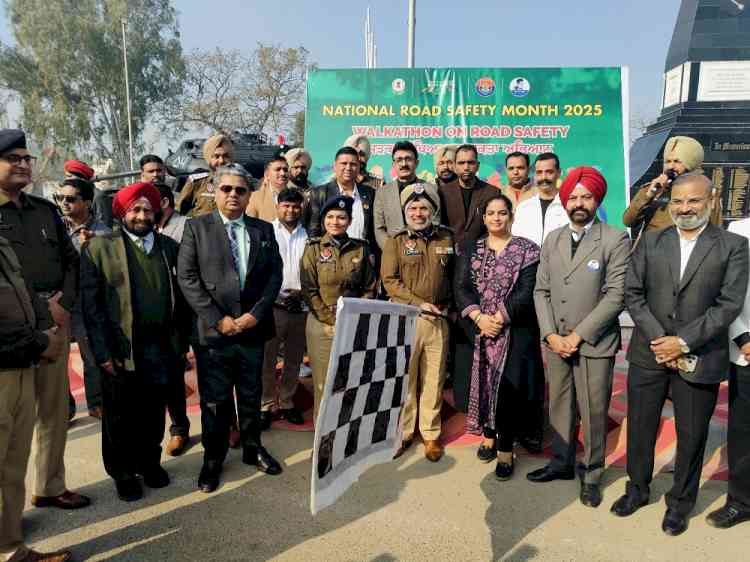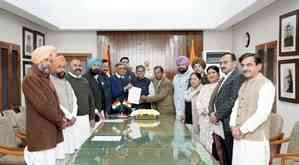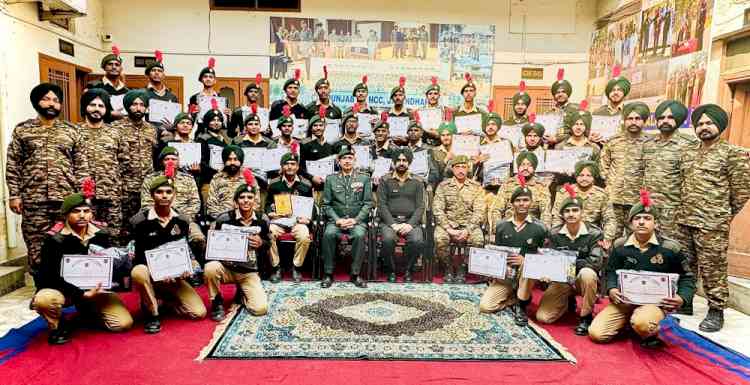Multi-stakeholder initiative to rejuvenate Kanjli wetland in Punjab
The Kanjli wetland is one of the important Ramsar sites of Punjab

Chandigarh:
Danone India and WWF India have announced a partnership to work together to enhance the ecological integrity of the Kali Bein Conservation Reserve with a focus on the Kanjli wetland in the Kapurthala district of Punjab. Working closely with key Government departments, civil society organizations, experts, communities, and industries, this three-year project will support the development of an integrated management plan for the conservation of Kanjli wetland, a roadmap for restoring (environmental) freshwater flows and put in place a multi-stakeholder mechanism for conservation of the wetland.
Kanjli Wetland is a 183-hectare man-made wetland constructed across the Kali Bein river for irrigation in 1870. It was declared as a Ramsar site in 2002. This wetland holds religious significance, being a part of the Kali Bein, a holy rivulet associated with Guru Nanak Dev ji. It also plays a vital role in maintaining groundwater regimes of the region and ecology of the Harike Wildlife Sanctuary - another Ramsar site. In 2019, with an objective to channelize efforts for conservation, the Government of Punjab declared the 210 hectares Kali Bein river along with Kanjli wetland as the Kali Bein Conservation Reserve.
Various factors threaten the health of the wetland, such as over-abstraction and diversion of freshwater flows, water-chemical intensive agriculture, and pollution. This partnership will develop pathways to address these threats and enhance its ecological health by adopting an integrated basin approach, which will contribute towards strengthening the natural interaction and interconnectedness of Kanjli, Kali Bein and the Harike Wildlife Sanctuary.
Ravi Singh, Secretary-General and CEO, WWF India, shared, “The project will work towards restoring the ecological and hydrological connectivity of three key freshwater ecosystems in Punjab - Kanjli, Kali Bein and the Harike Wildlife Sanctuary. This will contribute to the long-term health of the rich biodiversity dependent on these systems, particularly the endangered Indus River Dolphins and overall wellbeing of communities.”
Himanshu Bakshi, Managing Director, Danone India said, “Danone India has partnered with WWF India as Water stewardship is important to our One Planet.One Health agenda and our endeavor is to strengthen the existing efforts by WWF India to conserve the Kali Bein Conservation Reserve and Kanjli Wetland.
The Kanjli wetland is one of the important Ramsar sites (wetland of international importance) of Punjab, and I am confident this partnership will make a positive impact on the populations and habitat of aquatic species in the Kali Bein ecosystem.”
WWF India will also undertake capacity building, education and awareness programme to promote the wise use of the wetland and create a network of Wetland Mitras (Friends of Wetlands) to demonstrate a model for multi-stakeholder engagement in wetland conservation. A Water School programme will be implemented in 30 schools in the area. The initiative will also work closely with local communities to adopt better management practices in agriculture to reduce water, chemical fertilisers and pesticide use in their farms.


 cityairnews
cityairnews 








